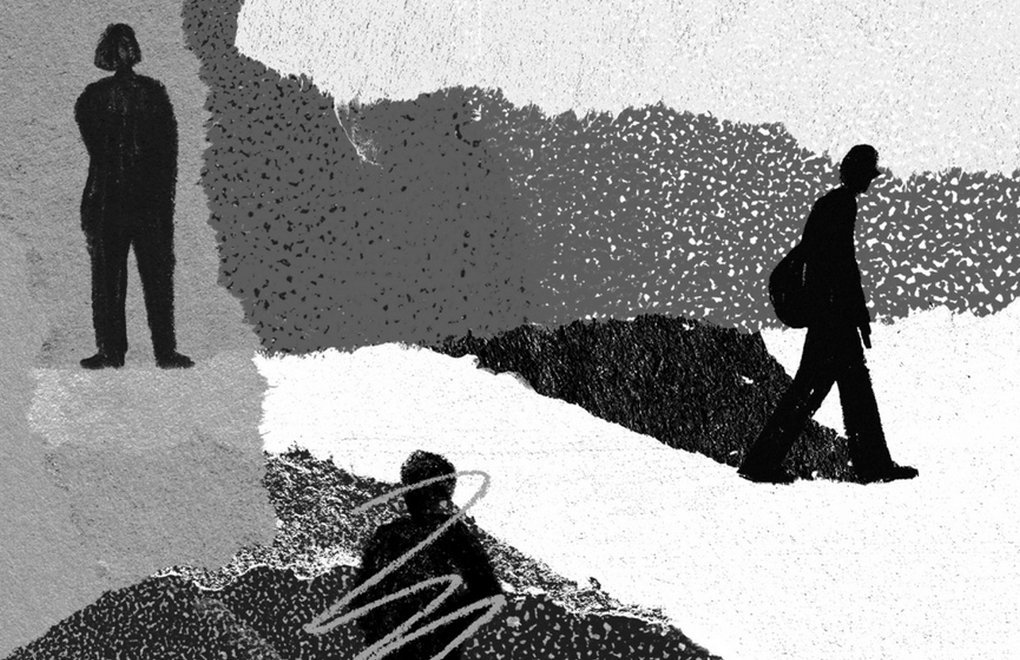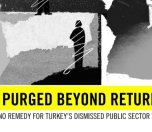Click to read the article in Turkish
One September morning 2016, two Turkish school teachers, Deniz and his wife Elif, awoke to news that turned their world upside down. Without warning or reason, they were both dismissed from their jobs and barred from working as teachers anywhere else in the country.
"Imagine you wake up one day and both you and your wife have lost your jobs," says Deniz. "There is no other job you are qualified for and you do not know how you will get by."
At first, Deniz and Elif thought there would be an investigation, that the mistake would be discovered and that soon they would be reinstated. But more than two years later, despite the fact that criminal charges against them were dropped, they are still unable to return to their jobs and are banned from the teaching profession altogether.
Their story is sadly all too typical. They are amongst almost 130,000 public sector workers summarily dismissed by decrees enacted during Turkey's state of emergency. The two-year state of emergency, put in place after the attempted coup in 2016, was lifted earlier this year, but for the thousands left without jobs or redress, the ordeal continues.
A new report published today by Amnesty International exposes the deliberate and systematic policy of Turkey's government to prevent public sector workers from effectively challenging their arbitrary dismissals and obtaining badly needed redress.
In January 2017, after mounting political pressure from abroad, the government set up a "State of Emergency Inquiry Commission" (the Commission) to review decisions taken by the emergency decrees. As of 5 October, the Commission had reached a decision in only 36,000 cases out of the 125,000 submitted applications. In less than seven per cent of the cases, the dismissal decisions were overturned.
People making their applications to the Commission face a Kafkaesque ordeal. To make an appeal, they need to state why they were dismissed, but since they had never been given reasons for their dismissal beyond a general ground of supposed "links" to "terrorist" groups, they are forced to make appeals in broad terms, or worse, guess as to the reasons that their contracts had been terminated. The wife of one dismissed TV broadcaster described how her husband "made an appeal without knowing what exactly [he was] appealing against."
The Commission lacks genuine institutional independence; it is not bound by any deadlines for reviewing decisions, and it fails to provide applicants with the chance to effectively rebut allegations that were the basis for their dismissals. At the same time, the Commission presents everyday lawful activities, such as opening account in a certain bank or joining a particular trade union, as spurious "evidence" for upholding original dismissals. The whole process is contrary to the fair trial standards that Turkey is bound to adhere to under international and regional human rights law.
Those relatively few public sector workers who are lucky enough to be reinstated following a positive decision by the Commission are not guaranteed their old jobs or even a place in their old institutions. People who held a management position at the time they were dismissed are often restored to non-management positions, effectively suffering a demotion.
Mass dismissals have had a devastating financial impact on the affected individuals and their families. Banned from employment in the public-sector, dismissed workers had no alternative but to turn to an often unsympathetic private sector, and employers who are often reluctant to give jobs to those fired by the authorities. As a result, many of those dismissed remain unemployed and struggling to provide for themselves and their families.
Social impact of the dismissals has been equally debilitating. Deniz describes how he feels ostracized by society since losing his job. "While you do not know exactly what you have been accused of, you are labeled as a 'terrorist' and left completely isolated, even from those closest to you."
The financial strain, coupled with the deep social stigma attached to the dismissals has left many workers with serious psychological problems. Having been out of work for 16 months, one healthcare professional we spoke to was able to get his job back, but the psychological scars did not go away. "Seeing my name on that list was devastating to me and my family," he said. "I didn't leave the house for eight months. I received psychological treatment. I'm still in therapy today."
Despite international condemnation of the mass dismissals, in July 2018 the government introduced a new law, which continued to provide for summary dismissals of public sector workers deemed "to have links to terrorist organisations or other groups posing a threat to national security" for an additional three years.
More than two years since the first dismissals began, tens of thousands of public sector workers are still living in limbo and without access to an effective remedy. Branded as terrorists and stripped of their livelihoods, they have had their professional and family lives shattered. Despite the clear arbitrary nature of the dismissals, the Commission established to review them, is not providing an opportunity for meaningful and effective appeal and is acting as a de facto rubber stamp for the vast majority of government decisions.
Two years after the first summary dismissals were carried out by emergency decrees, it is time for the authorities in Turkey to reinstate all public sector workers dismissed in this way and compensate them for damages, including loss of earnings, as well as physical and psychological harm. Any genuine allegations of wrongdoing should be handled through regular disciplinary processes with all the procedural safeguards normally guaranteed under law.
For many, much of the damage caused by the dismissals can never be repaired.
"We will not return as the people we once used to be", a dismissed academic who is now a construction worker, told us. "One of the most fundamental values a person has is their sense of justice. The moment you lose the sense that you have [access to] justice, you lose your sense of belonging to a country." (AG/SD)
Andrew Gardner is Amnesty International's Turkey Strategy and Research Manager
*Names have been changed to protect the identities of interviewees






